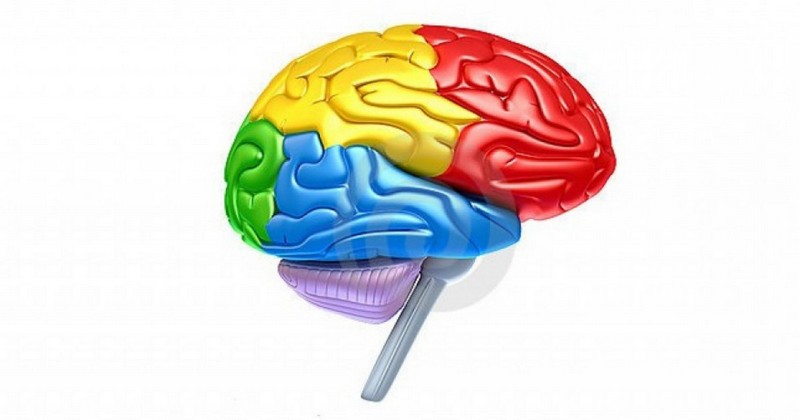10 psychological phenomena that will surprise you

Discover 10 surprising psychological phenomena: obedience to authority, multitasking...
Psychology deals with the complexity of human beings, their behavior and mental processes.
Among the various facets of the study of this science, we find the so called psychological phenomena. What are the most common psychological phenomena? In this article we will find out.
10 psychological phenomena that deserve to be explained
Our brain works in a somewhat surprising way, sometimes. We have compiled ten psychological phenomena that you may not have known about and that you may be interested to know about.
1. Cognitive Dissonance
It means that when we have two contradictory thoughts or beliefs, or we make decisions and behave differently from what we think, we will feel bad or have anxiety or discomfort.. When we become aware of such discomfort or tension, people unconsciously tend to regain equilibrium to reduce the dissonance. Then, we may behave or argue in favor of the decision we have made, to give us peace of mind and convince us that we have done well.
Let's take an example: a soldier must go to war but thinks that it is not right to kill another human being. If he has killed someone, he can argue that he has done it to defend the homeland. Another example is the smoker who knows that smoking harms him and increases his chances of getting Cancer and other diseases. Advertising and campaigns that prohibit smoking in public places increase internal tension and contradiction. We know that smoking kills, but we prefer to deny it. There are people who would say: "you have to die of something", "the doctor told me that my lungs are impeccable", "I control it", etc., and so we reduce the tension.
2. Hallucinations are common
One-third of people report experiencing hallucinations at some point in their lives.. Similarly, ordinary people often have paranoid thoughts. The brain acts in this way to fill in the lack of information. The problem is when that happens too often, because it can be an alarm of problems in certain regions of the brain. It is known that when schizophrenics have hallucinations, it is because the region that would be in charge of sending the message is actually activated. The sound, images or smells they perceive really exist for them, even though there is no stimulus to trigger them.
3. The Placebo effect
Occurs when the subject believes that a drug or medication has an effect on him, even though this effect has no physiological basis.. Examples of placebo are many products with "magical and miraculous effects" sold in pharmacies, energy bracelets, etcetera.
Researchers have found some curiosities such as:
- The bigger the pills, the more they cure.
- Two pills cure more than one
- Blue pills cure more than red pills
- Placebos in pills cure more than certain pills
- Injections cure more than pills
- There are also placebo tests: X-rays, scans...
4. Obedience to authority
Numerous studies show how people in power can control our behaviors and lead us to do things we don't want to do. In Stanley Milgram's famous study, 63% of the participants kept giving electric shocks to another human being just because someone in authority told them to do so.
5. Choices mediated by emotions
We are not very good at either making decisions or understanding why we make those choices. As science popularizer Eduard Punsetwe have been taught to be very logical and reasonable in making decisions, but it turns out that there is not a single reasonable decision that is not contaminated by an emotion. There is no project that does not start with an emotion. And there isn't a project that doesn't end because of an emotion."
Furthermore, when we make a decision, even if the decision is not a good one, we tend to rationalize why that decision is the best option. Emotional Marketing is in charge of gathering this knowledge and applying it to seduce our emotions and get us to buy a specific product.
6. Fantasizing reduces motivation
Thinking that we have already been successful in the past can reduce our motivation.. Moreover, we could take as valid the argument that thinking about success leads us to create the conditions for it to happen, but in reality this is rather counterproductive.
7. Brainstorming does not work
As B. Nijstad's studies (2006) showed, group thinking reduces the power of brainstorming. brainstormingBecause in a group, people are lazier and more concerned about what others think. It is better to think alone when it comes to creating ideas.
- In this article we explain extensively why Brainstorming does not work.
8. We should not suppress thoughts
Holding back thoughts actually makes you think about them even more. This is one of the strategies most commonly used by people suffering from Obsessive Compulsive DisorderMost people assume that this tactic has rarely helped them.
9. We can train multitasking
In general, multitasking reduces efficiency because we have to allocate different cognitive resources to different tasks simultaneously.. But recent studies show that you can learn to multitask. You just have to train yourself.
10. It's the little things that matter
We think it's the big events in our lives that change us or make us happy, but in reality it's the little things that add up and make us who we are.
As in The AlchemistaAs in The Alchemist, we must be aware that our life journey must be valued in its own right, in each of its circumstances, independently of the achievements to which we aspire.
(Updated at Apr 13 / 2024)